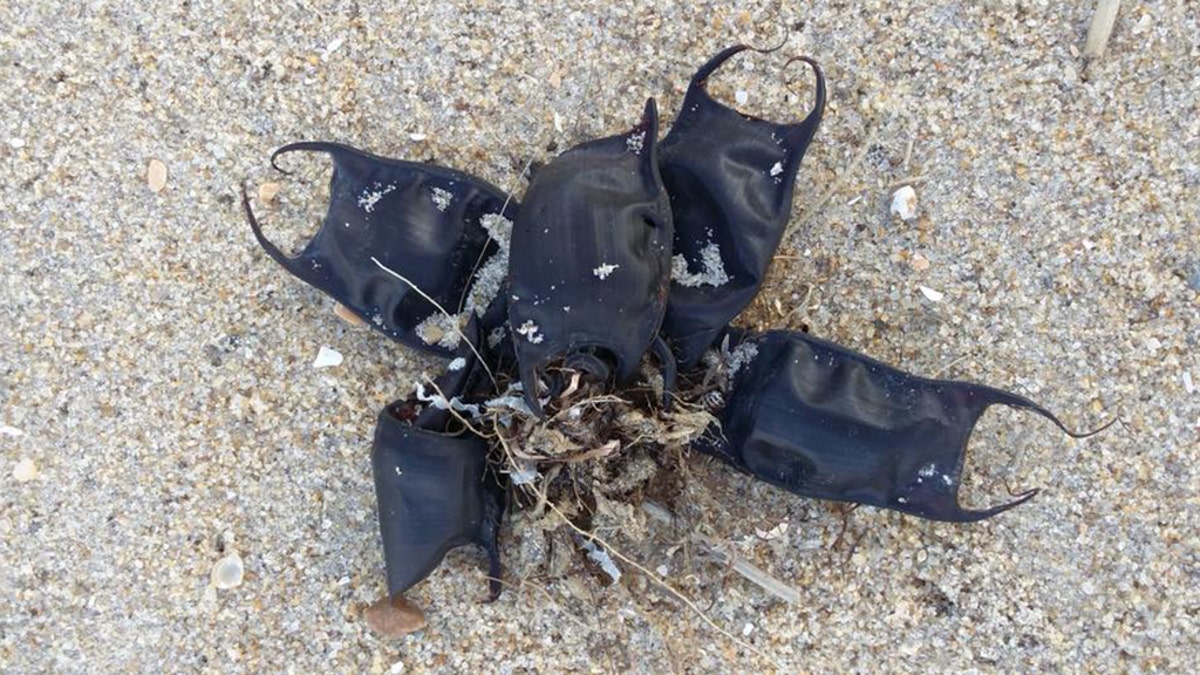
Skates are in the shark family. (Cape Hatteras National Seashore)
North Carolina residents taking a stroll along one of the state’s many beaches may have noticed black, plastic-looking “pouches” on the shore.
These odd-looking objects — known by some as “mermaid’s purses” or “devil’s pocketbooks,” according to The News & Observer — may look like plastic, but officials with the Cape Hatteras National Seashore clarified Monday they aren’t at all.
'PEA-SIZED' BABY OCTOPUSES DISCOVERED ON FLOATING TRASH IN HAWAII
“No these are not pieces of plastic; they are skate eggs!” the Cape Hatteras National Seashore clarified on Facebook.
“Skates are in the shark family but share a flat-like appearance similar to stingrays. These leathery pouches serve as an egg sack and are typically attached to a plant or other stationary object in the water,” the national seashore explained, adding the sacs typically “wash ashore after the skate has hatched.”
A variety of skate species — such as the little skate, the barndoor skate and the winter skate — can be found off the coast of North Carolina, according to the New Jersey Division of Fish & Wildlife.
The winter skate, specifically, reproduces late in life, usually when the creature reaches 11 years in age and roughly 2.5 feet in length, according to National Oceanic and Administration (NOAA). The winter skate “lay eggs year-round but have few offspring.”
The eggs incubate inside the hard case for roughly 6 to 12 months, according to NOAA. At that time, they hatch in adult form.
While skates may resemble stingrays, the two species have contrasting methods of reproduction, which is one of the biggest difference between these two ocean creatures, according to the Florida Museum.
“Rays are live-bearing (viviparous) while skates are egg-laying (oviparous), releasing their eggs in hard rectangular cases sometimes called ‘mermaid’s purses,’” the museum stated, adding rays have spines on their tails while skates do not.
MARYLAND PHOTOGRAPHER CAPTURES ‘RARE’ IMAGE OF HUGE MANTA RAY BREACHING
Both rays and skates are “closely related to sharks.”
The United Kingdom-based Marine Conservation Society has an online guide to help beachgoers identify the different skate egg capsules they may come across.
